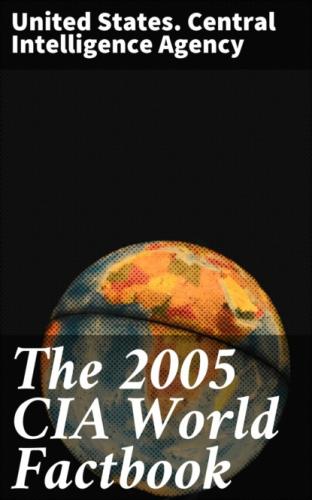Heliports: 1 (2004 est.)
Military Croatia
Military branches:
Ground Forces (Hrvatska Vojska, HKoV), Naval Forces (Hrvatska Ratna
Mornarica, HRM), Air and Air Defense Forces (Hrvatsko Ratno
Zrakoplovstvo i Protuzrakoplovna Obrana, HRZiPZO)
Military service age and obligation: 18 years of age for compulsory military service, with 6-month service obligation; 16 years of age with consent for voluntary service; Croatian Military Police planning to end conscription in 2005 (December 2004)
Manpower available for military service:
males age 18–49: 1,005,058 (2005 est.)
Manpower fit for military service:
males age 18–49: 725,914 (2005 est.)
Manpower reaching military service age annually:
males: 29,020 (2005 est.)
Military expenditures - dollar figure:
$620 million (2004)
Military expenditures - percent of GDP:
2.39% (2002 est.)
Transnational Issues Croatia
Disputes - international:
discussions continue with Bosnia and Herzegovina over several small
disputed sections of the boundary; the Croatia-Slovenia land and
maritime boundary agreement, which would have ceded most of Pirin
Bay and maritime access to Slovenia and several villages to Croatia,
remains un-ratified and in dispute; as a European Union peripheral
state, neighboring Slovenia must conform to the strict Schengen
border rules to curb illegal migration and commerce through
southeastern Europe while encouraging close cross-border ties with
Croatia
Refugees and internally displaced persons:
IDPs: 12,600 (Croats and Serbs displaced in 1992–1995 war) (2004)
Illicit drugs:
transit point along the Balkan route for Southwest Asian heroin to
Western Europe; has been used as a transit point for maritime
shipments of South American cocaine bound for Western Europe
This page was last updated on 20 October, 2005
======================================================================
@Cuba
Introduction Cuba
Background:
The native Amerindian population of Cuba began to decline after the
European discovery of the island by Christopher COLUMBUS in 1492 and
following its development as a Spanish colony during the next
several centuries. Large numbers of African slaves were imported to
work the coffee and sugar plantations and Havana became the
launching point for the annual treasure fleets bound for Spain from
Mexico and Peru. Spanish rule was severe and exploitative and
occasional rebellions were harshly suppressed. It was US
intervention during the Spanish-American War in 1898 that finally
overthrew Spanish rule. The subsequent Treaty of Paris established
Cuban independence, which was granted in 1902 after a three-year
transition period. Fidel CASTRO led a rebel army to victory in 1959;
his iron rule has held the regime together since then. Cuba's
Communist revolution, with Soviet support, was exported throughout
Latin America and Africa during the 1960s, 1970s, and 1980s. The
country is now slowly recovering from a severe economic recession in
1990, following the withdrawal of former Soviet subsidies, worth $4
billion to $6 billion annually. Cuba portrays its difficulties as
the result of the US embargo in place since 1961. Illicit migration
to the US - using homemade rafts, alien smugglers, air flights, or
via the southwest border - is a continuing problem. The US Coast
Guard intercepted 1,498 individuals attempting to cross the Straits
of Florida in 2004.
Geography Cuba
Location:
Caribbean, island between the Caribbean Sea and the North Atlantic
Ocean, 150 km south of Key West, Florida
Geographic coordinates:
21 30 N, 80 00 W
Map references:
Central America and the Caribbean
Area:
total: 110,860 sq km
land: 110,860 sq km
water: 0 sq km
Area - comparative:
slightly smaller than Pennsylvania
Land boundaries:
total: 29 km
border countries: US Naval Base at Guantanamo Bay 29 km
note: Guantanamo Naval Base is leased by the US and thus remains
part of Cuba
Coastline:
3,735 km
Maritime claims:
territorial sea: 12 nm
exclusive economic zone: 200 nm
Climate:
tropical; moderated by trade winds; dry season (November to April);
rainy season (May to October)
Terrain:
mostly flat to rolling plains, with rugged hills and mountains in
the southeast
Elevation extremes:
lowest point: Caribbean Sea 0 m
highest point: Pico Turquino 2,005 m
Natural resources:
cobalt, nickel, iron ore, chromium, copper, salt, timber, silica,
petroleum, arable land
Land use: arable land: 33.05% permanent crops: 7.6% other: 59.35% (2001)
Irrigated land:
870 sq km (1998 est.)
Natural hazards:
the east coast is subject to hurricanes from August to November (in
general, the country averages about one hurricane every other year);
droughts are common
Environment - current issues:
air and water pollution; biodiversity loss; deforestation
Environment - international agreements:
party to: Antarctic Treaty, Biodiversity, Climate Change, Climate
Change-Kyoto Protocol, Desertification, Endangered Species,
Environmental Modification, Hazardous Wastes, Law of the Sea, Marine
